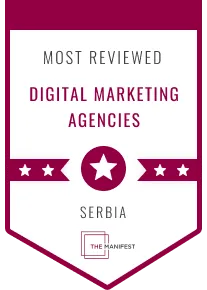Choosing an e-commerce platform is a big decision, you’re going to invest your hard-earned cash and build your business on this platform, and it’s going to define your business online for quite a few years; that’s a lot of pressure for any business to take on board.
If you know me, you know that I’ve been building websites for 20+ years and some of those have been the largest and most well-known brands of today, so – I understand that you are not an e-commerce platform expert – that’s my job; you’re an expert in whatever your business does.
In this article, I’m going to break down the reasons why Magento will be a better fit for your business than the likes of using SaaS e-commerce platforms.
Probably the majority of you have seen those YouTube videos about drop-shipping using Shopify as your e-commerce platform; however, generally these recommendations are more about selling you their online training courses on how to make millions of pounds in one hour of going live on Shopify, than actually providing you with the right recommendations on which e-commerce platform is best suited for your business.
By no means does this mean that Shopify isn’t the right tool for you, especially if you are just starting out with a small product and wanted to test the markets. Shopify is brilliant for market analysis, keeping your costs down; however, if you expect your business to scale, then maybe using Shopify wouldn’t be as beneficial as you would think.
I know that my team are recognised experts in creating bespoke Magento stores, but this article is more driven by our clients’ opinions on why they use Magento over SaaS e-commerce platforms.
The key reasons are as follows:
Flexibility and Scalability
Most SaaS e-commerce platforms are designed to provide middle of the road functionality, appealing to a large collection of quick to sale product merchants. In some cases that may not provide you with everything you need to execute on your e-commerce vision. If you want to step outside of the norm and build something extremely custom – then you have more options with the flexibility that comes with the open-source nature of the Magento platform and as for scalability – Magento can scale as large as you want.
Do you have a chain of physical stores and need to integrate the website or the management inventory across these locations, as in your customers can see the inventory of their local store, order it and pick it up that afternoon? Magento can do that.
Do you run international brands that all need e-commerce experience, that are optimised for multiple languages and fully integrated with your back-office systems? Magento can do that on one installation.
Full Control
Have you ever tried making an omelette blindfolded? It never comes out how you want it. Take off the blindfold and then you can gain total control. *Please note that I have never tried making an omelette blindfolded.
If you are in a heavily regulated industry, such as telecommunications, healthcare or financial services then it may be absolutely necessary for you to have full control over your technology stack. You may have a preference for certain technologies you want to use: AWS, Azure or you have an in-house system administrator who is in full control of your hosting stack. Let’s face it – those examples alone make Magento a no-brainer versus the likes of Shopify.
Business to Consumer
As we watch the growth of our B2C e-Commerce partners, we see their needs for further enhancement on their customer journeys, these may include specific tools from affiliate sites, marketing growth tools and so on. Their investment within their e-Commerce store grows with their business – it’s almost an organic growth pattern, where some elements are snipped-off and other elements are encouraged for growth, as that is what our partners’ customers want. These simple elements cannot be achieved by using a SaaS e-Commerce platform.
Business to Business
B2B is a whole different beast to B2C, you may need to negotiate pricing, get quotes, create corporate accounts, these are all things that are the bare minimum to meet your customers’ demands. Magento also allows you to craft specific customer experience sales funnels, which can be specialised to your industry and products. These are the key elements if you want to do B2B successfully. Magento has been designed to handle the most complex data needs and you can tie it into any back-office system you may be using, such as Salesforce; we’ve also connected to some pretty obsolete systems as well.
Innovation
Innovation is key for any business to grow and this is where Magento wins over Shopify. Allowing you to be ahead of the curve in technology and user experience, and the flexibility in what an open-source platform provides is essential. Let’s say for example Progressive Web Apps (PWA), this application is the future of any e-Commerce store and offers so much in return. There are ways in which you can build a PWA on Shopify; however, unless your needs are basic – you’ll eventually run into some features that need to be customised or custom-built, this is where a SaaS platform such as Shopify will fail you. As I said – innovation is key and this is where open-source Magento wins over any SaaS platforms.
High-Risk Industries
I suppose we should talk about high-risk industries, such as Adult Entertainment, Alcohol and even the likes of Cryptocurrency stores, which are affected by continuous changes in governing laws and public sentiment. This is where using an open-source framework and the flexibility of Magento is going to provide your business with the stability to do business in this ever-changing environment. This is something that a SaaS platform can never offer you. I have seen and heard of many companies being closed down due to new government legislation and the likes of Shopify (in fear of being fined), simply close these stores down. For any high-risk business or any business, this really isn’t a good business model to follow. The flexibility that Magento provides, allows you to transfer to a new host or get a new payment provider without any company saying no. We never know what will happen tomorrow, so it’s best to plan for smooth actionable transitions.
If your business has a lot of complexity then Magento is an obvious choice.
If you are still having trouble narrowing down which e-commerce platform to go for, or want to discover more, then send me a message, where we can schedule in some time to discuss or simply leave your comments and join in with the conversation.









